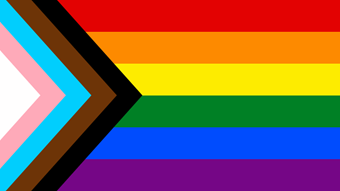We’re celebrating Pride Month with a language you may never have heard of – Polari!
Polari sprang up in the 1700s and 1800s as a secret language used by vagrants, itinerant performers, sailors and travelling communities. It was made up of Italianate phrases, rhyming slang, cant terms and many words of Romany origin.
In the 19th and 20th centuries, Polari thrived in underground queer culture, allowing gay men to talk about their sexualities without being persecuted or prosecuted, as homosexuality was illegal in the England and Wales until 1967. (It was fully decriminalised in the UK in 1982.) Though we can’t for sure say when Polari began, it seems to have reached its apex in the 1940s and 50s.
By the late 1960s, Polari began to decline – in part as queer liberation movements moved more towards openness, as opposed to secrecy. Polari was also popularised in radio comedy shows such as Round the Horne, which brought the slang to a more mainstream audience, thus somewhat undermining the secrecy of it.
For this reason, you might already know some Polari and use it every day – see for instance, “naff” to mean “rubbish”, “camp” for “flamboyant” and “dish” to say someone is attractive.
If you feel like greeting someone in Polari today, why not try out “How bona to vada your dolly old eek!” (That is, “How good to see your dear old face.”) Otherwise, you could always try “Vada the dolly dish, shame about his bijou lallies” (“Look at the attractive man, shame about his short legs”).
+44 1562 748 778
















